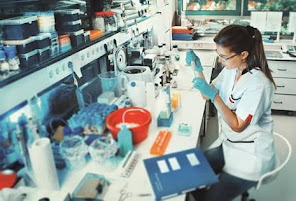Becoming a Navy Pharmacist - Roles, Responsibilities, and Career Path

The role of a Navy Pharmacist is a unique blend of healthcare expertise and military service, offering a distinctive and fulfilling career path. Whether you're considering this career for the adventure, sense of duty, or professional growth, here's a comprehensive guide on how to become a Navy Pharmacist, the responsibilities you'll shoulder, and the path you'll take. Roles and Responsibilities of Navy Pharmacist : As a Navy Pharmacist, you'll have a range of roles and responsibilities: Medication Management: Dispense medications, ensure their safe storage, and educate patients or fellow personnel on their use. Pharmaceutical Care: Provide pharmaceutical care, including medication therapy management, monitoring for drug interactions, and optimizing treatment plans. Clinical Roles: In military hospitals or clinics, you may be involved in clinical pharmacy, working with healthcare teams to provide comprehensive patient care. Drug Safety: Monitor and report advers...





